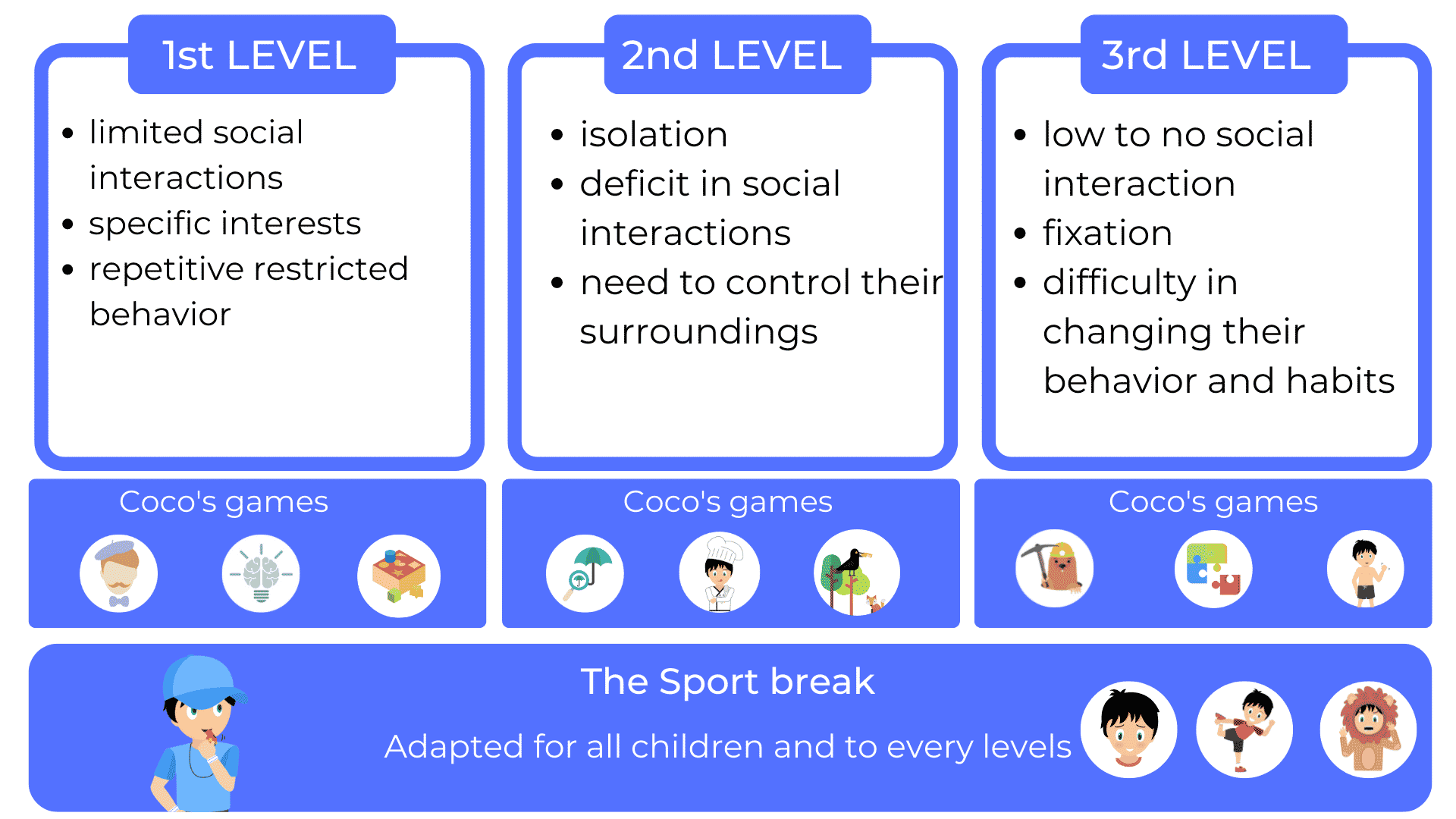Autism is known by many people. But this does not mean that this knowledge is right, quite the contrary. There is often a tendency to find different myths about autistic people, and that doesn’t do them justice.
In fact, many people will tell you that people with autism get angry all the time, that they have no emotions and are therefore incapable of showing compassion. You will even hear that an autistic person has unusual abilities or cannot speak. All these preconceived ideas end up giving a popular image of autistic people, and of course, this image is totally removed from reality.
We’ve prepared an article to help you differentiate the true from the false and put an end to false beliefs about autistic people. So, don’t wait any longer to read the rest of this article!
An autistic person does not feel emotion
There is often the idea that a person with autism will be unable to feel emotions. Of course, this misconception is completely false and often stems from the fact that some people with autism are not able to express their feelings and emotions as one might expect. This leads outsiders to believe that the autistic person doesn’t feel anything. If a person with an autism spectrum disorder expresses themselves poorly, it simply means that they are having trouble sharing their feelings clearly.
Their awkwardness must therefore be taken into account without forgetting that an autistic person will go through the same stages as another person. You will very often notice that an autistic person will find it difficult to put several nuances in their emotions, they will regulate what happens to them with great difficulty.
We must therefore be patient and take the time to understand the other person’s emotions while adapting our reactions to show our own emotions clearly. An autistic person will therefore have emotions but difficulties in expressing them in a complex way.
An autistic person is necessarily aggressive
Another totally distorted myth is that an autistic person is aggressive and angry. This misconception is far too deeply rooted in popular thinking, whereas certain phases of aggressiveness are simply related to a lack of ability to express oneself. In fact, if an autistic person is aggressive, it is because they cannot find another alternative to express themselves in a situation. Incomprehension is a fairly frequent situation among these people who do not have the same codes and regularly find themselves in unpleasant and distressing situations.
Clumsiness and a call for help should not be confused with aggressiveness, which is only a myth among autistic people.
A person with autism cannot speak
An autistic person is perfectly capable of communicating despite the myths that circulate and suggest otherwise. There are autistic people who do not speak but this is not the majority. There are also different forms of language and an autistic person can evolve in the way they communicate with others.
At the level of language, we can find two major categories such as expressive language which is a way of communicating by expressing ideas in various ways. But there is also receptive language that will allow us to understand what is happening. Language evolves in different ways in people with autism, but in no case can we consider that a person with this type of disorder will not be able to express their thoughts. It is mainly necessary to learn the communication codes used.
An autistic person has no compassion
We very often find the idea that an autistic person cannot show empathy with those around them, but this idea is of course totally wrong.
Putting oneself in someone else’s shoes is an existing ability in an autistic person. But we can often doubt it because these people have difficulty in decoding the behavior of people who function differently. This complicates empathy and the ability to react accordingly.
It is very common for people with autism to feel much more empathy than other people, so the difficulty in analyzing and interpreting other people’s emotions should not be confused with a lack of compassion. People with autism are sensitive people with feelings and real contact with the world around them.
Discover the COCO THINKS and COCO MOVES app: a useful tool to use with occupational therapists
The COCO THINKS and COCO MOVES app contains more than 30 educational games to work on English, math, logic, memory or attention.
It is a program developed for children with cognitive impairments, such as autism, ADHD, DYS disorders.. to prevent the players from failing.
Indeed, each game has 3 levels of difficulty where the ‘easy’ level truly is simple. Therefore, the user will progress at their own pace, while receiving rewards and encouraging messages.
In addition, the application imposes a sports break every 15 minutes of screen time to teach a measured use of screens.
Much smarter than a parental control!

D’autres articles qui pourraient vous intéresser :
Using Technology to Enhance Communication in Autism Speech Therapy
Autism Spectrum Disorder (ASD) presents unique challenges in communication, making speech therapy an essential...
Effective Autism Behavior Therapy: Improving Outcomes
Autism is a complex neurodevelopmental disorder that affects individuals in various ways. It is characterized by...
Autism Therapy at Home: Effective Strategies
Autism Spectrum Disorder (ASD) is a neurodevelopmental disorder that affects individuals in various ways. It is...








